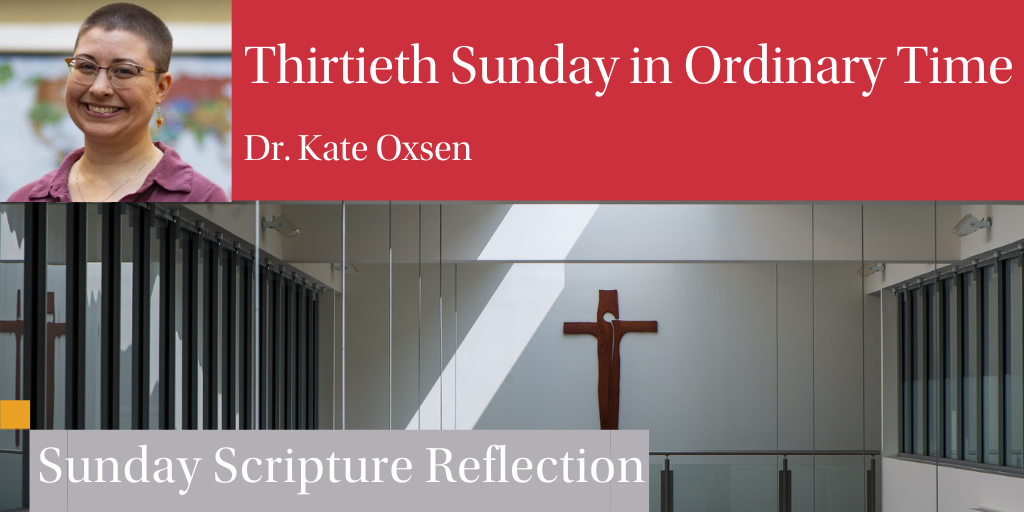
Readings:
Reading I: Sirach 35:12-14, 16-18
Psalm: 34:2-3, 17-18, 19, 23
Reading II: 2 Timothy 4:6-8, 16-18
Gospel: Luke 18:9-14
Today’s reading from Luke puts readers in an interesting position. On the one hand, it is presented as a warning about becoming self-righteous (18:9). On the other hand, it makes it easy for readers to fall into the same trap Jesus is warning them about. Readers will want to identify with the tax collector and separate themselves from the Pharisee. In doing so, they run the risk of becoming self-righteous themselves! These two characters are placed against each other in readers’ minds, suggesting that one is be “bad” and one is “good.” However, if we look a little closer, it may not be that simple.
The Pharisee does express a sentiment indicating that he thinks little of those who do not appear to be walking the path of the righteous (18:11). But he also lists the good works that he does (18:12), and his attempts to maintain integrity in his life (18:11). He thanks God for these attributes and actions, suggesting that he sees this as God’s work or influence in his life and not his own. His attitude needs some adjusting, but he is trying. We can say something similar about the tax collector.
He clearly feels badly about some aspect of his life, and he asks God for forgiveness (18:13). It is easy to assume that the sins to which he refers are related to his position as a tax collector, but he does not actually say this. We are only told that the tax collector considers himself a sinner. He asks God for mercy, but not for help in changing his ways. His feelings of regret indicate that he wants to change, but it seems he’s not ready to try. The tax collector, then, needs to make some adjustments, too. Moreover, both the Pharisee and the tax collector turn to God, rightfully understanding God to be the highest good.
Reading this parable puts us in the position to “play God.” We are granted insight into both characters’ minds and invited to judge them, to decide who is worthy of being justified. In doing so, we effectually become the ones exalting themselves and despising others. Perhaps this is where the lesson in the parable lies. In reading it, we experience what it means to judge and criticize where we have no right to. At any time in our lives, we can easily be the one looking down on others. We can also easily be the one who refuses to make changes, even when we know we should.
Our other readings today encourage us to think about this story differently, as well. The book of Sirach reminds us that God hears and responds to the prayers of all. The marginalized (35:16-17), as well as those who “…serve God in order to please him” (Sir 35:20). Like the Second Letter to Timothy, it reminds us that God is the only just judge (2 Tim 4:8).
True moral living does not make us surer of ourselves as we go. It does not make us feel entitled to judge and condemn others. True moral living makes us feel humble and more compassionate towards others. It requires that we are open to the world, not closed off to it. Throughout Christ’s life, death, and resurrection, he calls us to love, mercy, and compassion. He also calls us to challenge ourselves, to try each day to do better than the last. May the Pharisee and tax collector in this story remind us to always seek God, the highest good, in our times of thanksgiving, our times of need, and all times in between.
